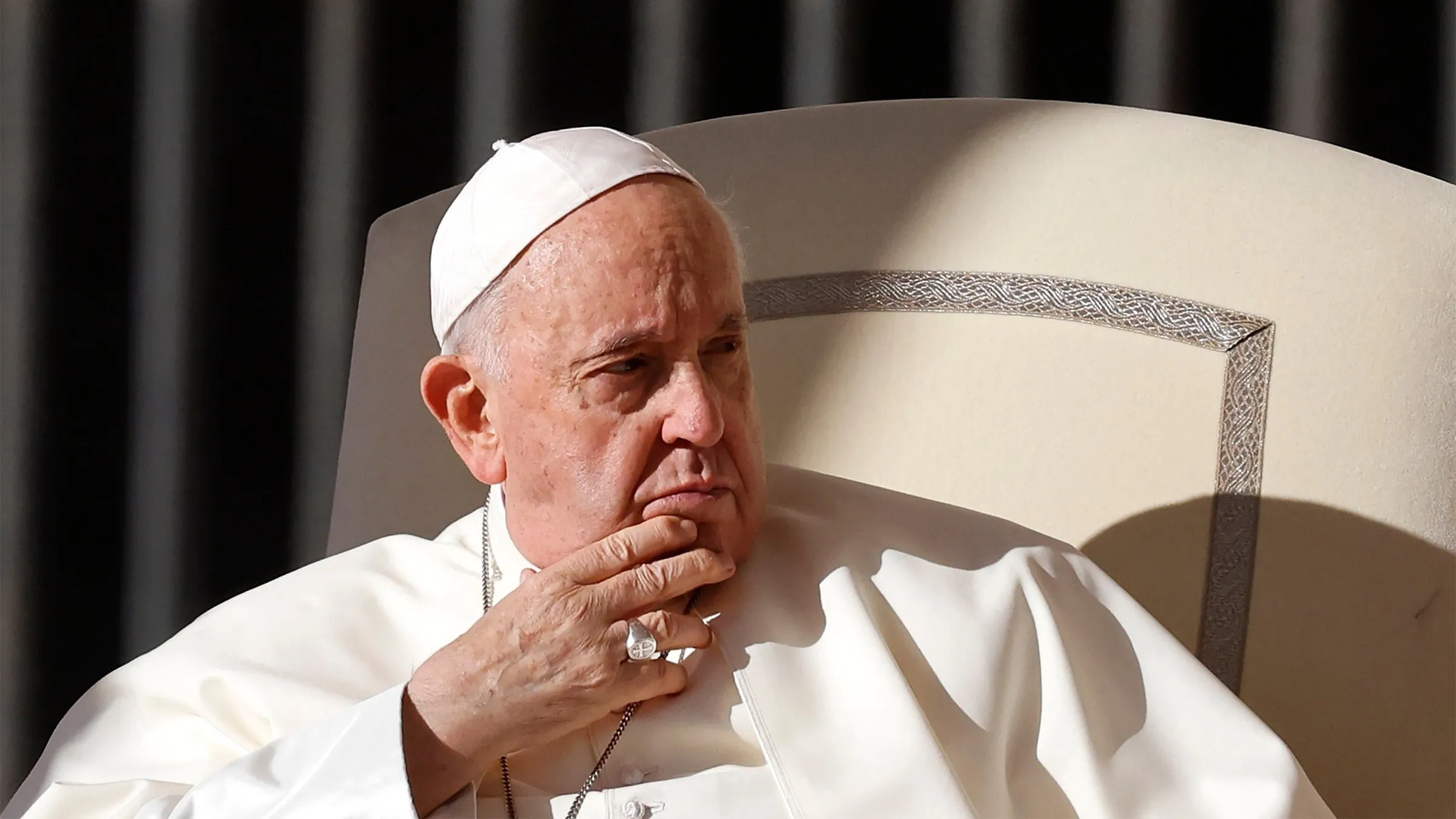The dangers of artificial intelligence were again the subject of remarks by Pope Francis as he addressed world leaders at the annual G7 Summit in Puglia, Italy on Friday.
During his speech, Francis called on global governments to ban the use of AI in war and develop an ethical framework for the technology, emphasizing the need for collaboration to guide its development and use.
“In light of the tragedy that is armed conflict, it is urgent to reconsider the development and use of devices like so-called ‘lethal autonomous weapons’ and ultimately ban their use,” the Pope said. “This starts from an effective and concrete commitment to introduce ever greater and proper human control.
“No machine should ever choose to take the life of a human being,” he said.
The head of the Catholic Church has repeatedly used his platform to address AI after the explosive launch of ChatGPT in 2022 and the subsequent surge of AI into the mainstream, previously calling it the “highest-stakes gamble of our future.”
Himself the focus of several viral AI-generated images and videos—including one depicting him wearing a puffy white Balenciaga jacket—Pope Francis acknowledged the growing power of AI in politics, medicine, and education.
Opening remarks of President Giorgia Meloni and Pope Francis at the sixth session on Artificial Intelligence, Energy, Africa and Mediterranean #G7Italy
It is the first time in history that a Pontiff participates in the #G7 works.
Watch the video here 👇https://t.co/gkMu2Nj5d2 pic.twitter.com/obyfYECU8C
— G7 Italy (@G7) June 14, 2024
Calling AI a “true cognitive-industrial revolution” that could bring complex epochal transformation, Pope Francis nonetheless warned that technology could also bring greater injustice between advanced and developing countries, or between dominant and oppressed social classes.
Technology is not infallible, the Pontiff said.
“It is a frequent and serious mistake to forget that artificial intelligence is not another human being and that it cannot propose general principles,” Francis said. “This error stems either from the profound need of human beings to find a stable form of companionship, or from a subconscious assumption—namely the assumption that observations obtained by means of a calculating mechanism are endowed with the qualities of unquestionable certainty and unquestionable universality.”
The Pope also addressed what he called the “techno-human condition,” and humanity’s relationship with technology throughout history.
“Human beings have always maintained a relationship with the environment mediated by the tools they gradually produced,” he said. “It is not possible to separate the history of men and women and of civilization from the history of these tools.”
The Pope noted that technology can be used to both sustain life and take it, and said that in the future, artificial intelligence will reach the singularity.
“This is all the more true because it is highly likely that, in the not-too-distant future, artificial intelligence programs will be able to communicate directly with each other to improve their performance,” he said.
The singularity refers to a time when computers and artificial intelligence advanced beyond human control.
“And if, in the past, men and women who fashioned simple tools saw their lives shaped by them —the knife enabled them to survive the cold but also to develop the art of warfare—now that human beings have fashioned complex tools they will see their lives shaped by them all the more,” the Pope said.
Pope Francis is among the most prominent in a worldwide chorus of voices pushing for a more cautious approach to AI. Last summer, the UN Secretary-General António Guterres said such warnings should be taken seriously.
"Alarm bells over the latest form of artificial intelligence, generative AI, are deafening, and they are loudest from the developers who designed it," Guterres said during a press conference.
While Francis expressed concern about generative AI, he also emphasized its creative potential for humanity.
“Sacred Scripture attests that God bestowed his Spirit upon human beings so that they might have ‘skill and understanding and knowledge in every craft,’” Francis said. “Science and technology are therefore brilliant products of the creative potential of human beings. Indeed, artificial intelligence arises precisely from the use of this God-given creative potential.”

